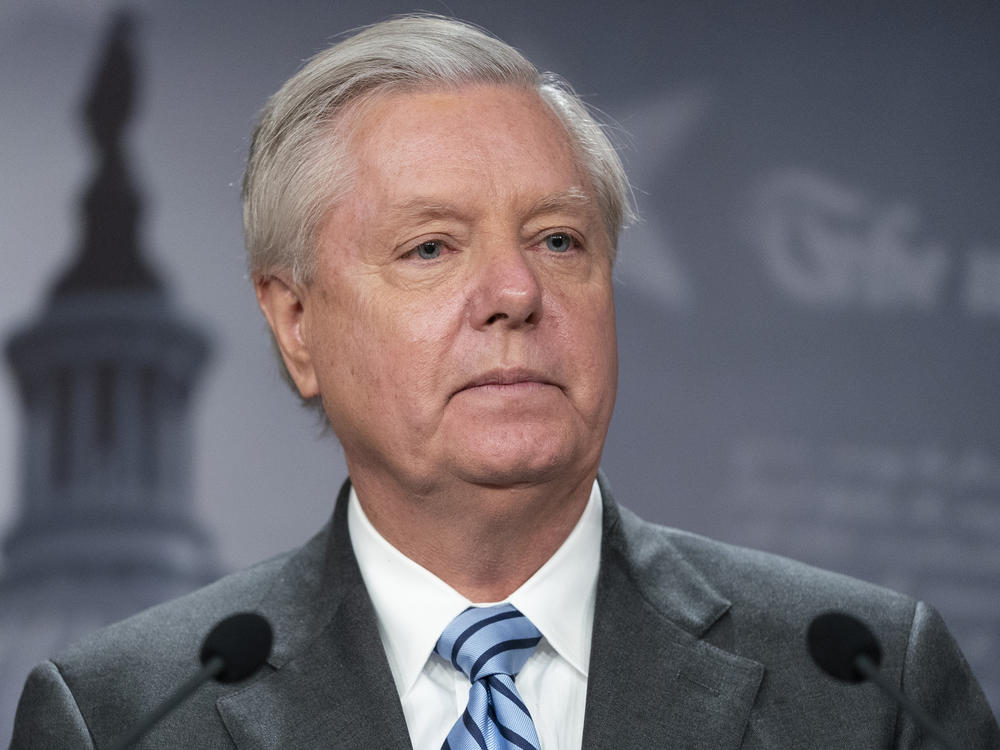Section Branding
Header Content
Lindsey Graham will fight Georgia 2020 election subpoena, his lawyers say
Primary Content
NEW YORK — Attorneys representing Sen. Lindsey Graham of South Carolina said Wednesday he intends to challenge a subpoena compelling him to testify before a special grand jury in Georgia investigating former President Donald Trump and his allies' actions after the 2020 election.
Graham was one of a handful of Trump confidants and lawyers named Tuesday in petitions filed by Fulton County District Attorney Fani Willis as part of her investigation into what she alleges was "a multi-state, coordinated plan by the Trump Campaign to influence the results of the November 2020 election in Georgia and elsewhere."
Graham attorneys Bart Daniel and Matt Austin said in a statement Wednesday that the Republican senator "plans to go to court, challenge the subpoena, and expects to prevail," and they slammed the probe as politically motivated.
"This is all politics. Fulton County is engaged in a fishing expedition and working in concert with the January 6 Committee in Washington," they wrote, adding that, "As Chairman of the Senate Judiciary Committee, Senator Graham was well within his rights to discuss with state officials the processes and procedures around administering elections."
"Should it stand, the subpoena issued today would erode the constitutional balance of power and the ability of a Member of Congress to do their job," they went on. They also said they had been informed by Fulton County investigators that Graham "is neither a subject nor target of the investigation."
"Should witnesses choose to challenge an order that they testify before the Special Purpose Grand Jury, the District Attorney will respond in the appropriate court to compel their appearance," Fulton County district attorney's office spokesperson Jeff DiSantis said in an email.
In the petition submitted Tuesday, Willis wrote that Graham, a longtime Trump ally, made at least two telephone calls to Georgia Secretary of State Brad Raffensperger and members of his staff in the weeks after the November 2020 presidential election, which Trump lost to Democrat Joe Biden. During those calls, Graham asked about reexamining certain absentee ballots "to explore the possibility of a more favorable outcome for former President Donald Trump," she wrote.
Willis also filed petitions to compel cooperation from former New York Mayor Rudy Giuliani, who was one of Trump's primary lawyers during the failed efforts to overturn the result of the election, as well as lawyers Kenneth Chesebro, Cleta Mitchell, Jenna Ellis, John Eastman and Jacki Pick Deason.
Giuliani was recovering Tuesday after undergoing surgery to have two heart stents put in, his son, Andrew Giuliani, said while filling in for him as co-host on radio's "The Rudy Giuliani Show."
Because she is trying to compel testimony from people who live outside of Georgia, Willis had to submit petitions for a judge's approval. The judge overseeing the special grand jury signed off on her petitions.
The next step is to deliver the documents to a prosecutor wherever each potential witness lives so that they can be presented to a local judge to hold a hearing. If that judge determines that the person is a "material and necessary witness" and that the trip to Atlanta to testify would not be an undue burden on the potential witness, the judge would issue a subpoena to compel the person to testify before the special grand jury. Someone who fails to comply with a subpoena can be found in contempt.
Copyright 2022 NPR. To see more, visit https://www.npr.org.

